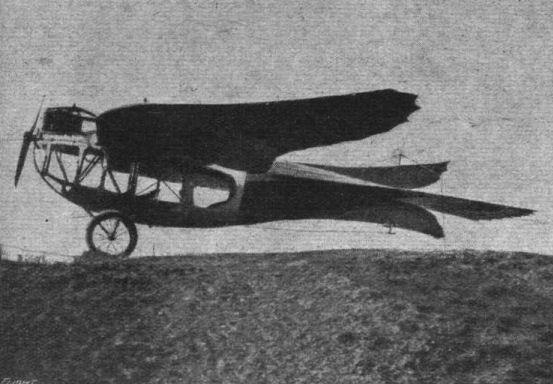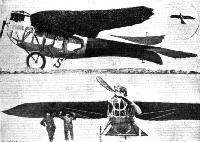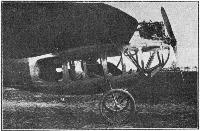
Описание
Страна: Австро-Венгрия
Год: 1912
R.Keimel Osterreichs Luftfahrzeuge (Weishaupt Verlag)
Etrich "Luftlimousine" 1912
В 1911-1912 годах был разработан аппарат с закрытой остеклённой кабиной для размещения троих человек. Первоначально задумывался как военный разведчик, затем позиционировался как лимузин. Управляемый лейтенантом Генрихом Биром, лимузин установил два мировых рекорда во время кругового перелёта вокруг Великобритании в 1912 году: 16 августа 1912 года - скорость с тремя людьми на борту: 106,029 км/ч, с двумя людьми: 112 км/ч.
Производитель: Etrich-Fliegerwerke, Liebau, Силезия
Назначение: Армейский разведчик и транспортный самолет
Производство: 1911/1912 годы
Количество: 2
Экипаж: 1 пилот + 2 пассажира
Двигатель: 1 х 48 кВт (65 л.с.) Austro-Daimler, 4-цилиндровый, двухлопастный пропеллер
Размеры:
Размах крыльев: 13,00 метров
Длина: 8,30 метров
Высота: 2,60 метров
Площадь крыла: 31,00 квадратных метров
Максимальная скорость: 120 км/ч
Описание:
- R.Keimel Osterreichs Luftfahrzeuge (Weishaupt Verlag)
- Журнал Flight
Фотографии
-
Журнал - Flight за 1917 г.
The enclosed Etrich Taube, built and flown in Austria in 1912.
-
Журнал - Flight за 1912 г.
The Etrich 1912 military monoplane, from the side and front. Inset the machine is seen in flight. One of the Etrich machines has just been acquired by the British Government.
-
Форум - Breguet's Aircraft Challenge /WWW/
Etrich VIII Luft-Limousine/Fluglimousine (Austria, 1912) The Etrich Limousine made its maiden flight on May 7, 1912 at Josefstadt, Austria. It was the first passenger aircraft with a completely enclosed seating cabin. Igo Etrich had established the "Aeroplan Bau Gewerbe" in his home town of Trautenau, and at the airfield in Josefstadt - only few kilometres south of Trautenau - developed his new constructions: the Taube-Limousine and Schwalbe. The airplane had very successful flight characteristics and made many flights.
-
R.Keimel - Osterreichs Luftfahrzeuge /Weishaupt Verlag/
Etrich "Luftlimousine"
-
Jane's All The World Aircraft 1913 /Jane's/
Illustration: Photograph from right, partially obscured. Caption: ETRICH. Limousine. Photo, Guld.
-
Журнал - Flight за 1915 г.
The evolution of the Etrich Taube.
Другие самолёты на фотографии: Etrich Praterspatz / Sperling - Австро-Венгрия - 1909Etrich Schwalbe - Австро-Венгрия - 1912Etrich Taube - Австро-Венгрия - 1910









